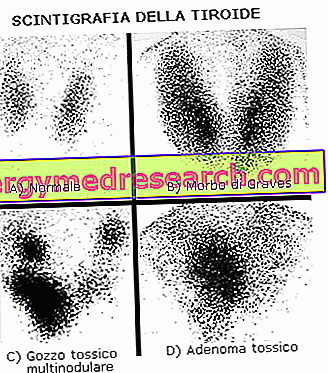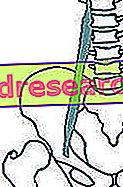Generality
The term anxiety derives from the Latin angĕre, which means to tighten, and it is an affection, however unpleasant, commonly found in various moments and situations of human life.

It is important to establish the boundaries between normal (physiological) and pathological anxiety.
Anxiety: Normality or Pathology?
Normal, or physiological, or alarming anxiety is a state of psychological and physical tension that implies a generalized activation of all the resources of the individual, thus allowing the implementation of initiatives and behaviors useful for adaptation. It is directed against a really existing, often well-known stimulus, represented by difficult and unusual conditions.
Anxiety, on the other hand, is pathological when it disturbs psychic functioning to a greater or lesser extent, resulting in a limitation of the individual's ability to adapt. It is characterized by a state of uncertainty with respect to the future, with the prevalence of unpleasant feelings; sometimes it is vague, that is, without a precise recognizable cause, or it may concern specific objects and events; refers to an imminent future, or to the possibility of more or less distant events; often accompanies other psychological and psychiatric problems, as well as the unresolved conflicts of the person who is affected; it has an intensity such as to cause unbearable suffering; determines defensive behavior that limits existence, such as the avoidance of situations considered potentially dangerous or of control through the implementation of various types of rituals.
The pathological anxiety is found, as well as a disorder in its own right, even in almost all psychiatric illnesses: dementia, schizophrenia, depression and mania, personality disorders, sexual and adaptation disorders.
This is a problem that has a prevalence, over the lifetime, of 30.5% in women and 19.2% in men.
Causes
- Hereditary factors : some genetic studies have found that, in about 50% of cases, subjects with anxiety disorders have at least one family member with a similar pathology.
- Biological factors : according to some studies carried out on the human brain, anxiety would be caused by alterations in the quantity of some neurotransmitters, such as excessive production of norepinephrine (the stress hormone) and a reduced production of serotonin (which regulates the wellness) and GABA (which is an inhibitory neurotransmitter)
- Unconscious factors : according to Freud, the father of psychoanalysis, anxiety derives from an unconscious conflict that can go back to childhood or develop into adult life. This psychological conflict sets in motion defense mechanisms whose purpose is to remove this same conflict from consciousness, relegating it to an inaccessible location of the psyche, which is the unconscious.
Symptoms
To learn more: Symptoms Anxiety
Anxiety is characterized by general symptoms, psychological and related to the activation of the autonomic nervous system, that is that which is not under the control of the will of the person (sympathetic and parasympathetic), and which are called neurovegetative disorders.
- The general symptoms of anxiety are represented by: sense of fear and imminent danger; fear of dying or losing control or going crazy; avoidance; subjective internal tension; inability to relax; apprehension; hypervigilance; restlessness.
- The psychological symptoms of anxiety are: excessive concerns about secondary issues; tendency to catastrophism; irritability and impatience; difficulty concentrating and lack of attention; feeling of loss of one's personality (depersonalization) and loss of the sense of surrounding reality (derealization); memory disorders; sleep disorders.
- The neurovegetative symptoms are represented by: difficulty in breathing, sense of chest tightness, air hunger (dyspnea), accelerated breathing (hyperpnea); chest pain; sense of light head, dizziness, feeling of instability and lack of balance, impending fainting (lipotimia); tingling in parts of the body; hot or cold flashes; feeling of suffocation, difficulty swallowing, feeling of "lump in the throat"; dry mouth; accelerated or non-regular heart rate (arrhythmic); excessive sweating; sense of weakness and fatigue (especially in the lower limbs); tremors; frequent urination (urination); diarrhea; muscle tension.
Categories of anxiety disorders according to DSM-IV-TR (diagnostic and statistical manual of mental disorders)
Panic disorder (DP) and / or agoraphobia Specific phobia and special phobia Obsessive-compliant disorder Post-traumatic stress disorder (PTSD) and acute stress disorder (DAS) Generalized anxiety disorder (DAG) Anxiety disorder due to a condition medica Substance induced anxiety disorder Anxiety disorder not otherwise specifiedAnxiety Care
Anxiolytics - Anxiolytic drugs Anxiety drugs Anxious syndrome: natural remedies Supplements Against Anxiety Remedies Against Anxiety Tisanes for anxiety and insomnia



